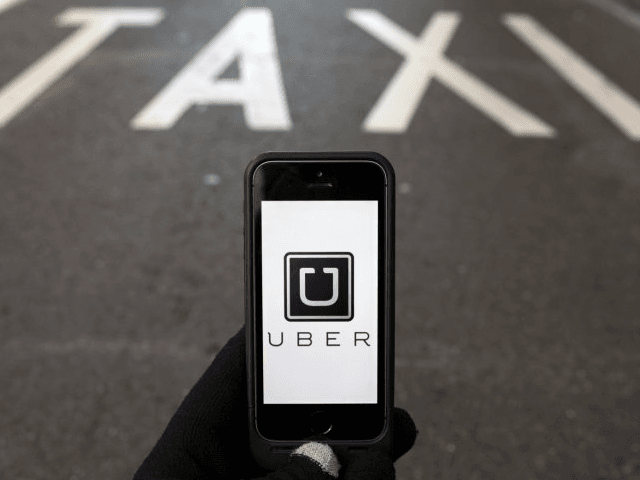U.S. District Judge Edward Chen, a Barack Obama appointee, granted class action status to a lawsuit claiming Uber Technologies Inc. illegally classifies its on-call drivers as independent contractors, rather than employees with rights and benefits.
The lawsuit, entitled Douglas O’connor, et al., Plaintiffs, v. Uber Technologies, Inc., et al., claims that drivers are employees of Uber, and therefore eligible for various statutory protections for employees codified in California Labor Code under section 351.
The judge’s ruling that the case can go forward as a class action may be a disaster for Uber, because it applies to all people who have driven for Uber in the state of California and does not waive their right to class action arbitration.
The litigation has broad policy implications as millions of Americans are opting for more flexible work arrangements that let them set their own schedules and hold multiple part-time occupations in the “gig economy.”
Breitbart News reported on the early August court hearing that focused on how much control Uber exerts over its drivers, and whether the drivers are similar enough to be lumped into one group. Uber’s attorney, Ted Boutrous, attempted to argue that Uber’s contracts were merely licensing agreements (Uber often touts itself as a technology platform for connecting drivers and riders) and not labor contracts. But the judge dismissed the idea.
Plaintiffs’ attorney Shannon Liss-Riordan posited that Uber’s relationship with its drivers met seven of the nine points in a state legal test to determine whether someone is an employee. She also argued that regardless of the 400 “happy” drivers Uber had corralled to provide testimonials, the decision should create the best policy, not give into “what people want.”
Liss-Riordan suggested that Uber settle by paying drivers reimbursement of mileage expenses, which can be calculated from Uber and IRS records, though the judge has so far denied this part of the class certification request.
Uber’s business model is to keep 20 percent of all “fares” by recruiting contract drivers, advertising that they can make $18-an-hour by using their own car as an on-call limo, versus about $8-an-hour as a taxi driving employee.
By turning employees into entrepreneurial “gig” workers, Uber saves 30.4 percent mark-up by eliminating Social Security and Medicare taxes, as well as unemployment and workers’ compensation insurance. Uber also avoids paying employee benefits that cost on average $10.61-per-hour, according to the U.S. Bureau of Labor Statistics.
Uber drivers generally do believe that they are making a profit as entrepreneurs by “sharing” their own personal vehicles and paying for their own gasoline. But they want to “contract” with Uber to service peak demand hours around high-volume area zip codes. These entrepreneurs often have no interest in picking up rides from poor people in dangerous neighborhoods or spending $60,000 on a wheelchair-accessible vehicle.
Breitbart News warned in April that it was a sign of Uber Technologies’ deteriorating defense posture that it dumped its attorneys Morgan, Lewis & Bockius and hired Gibson, Dunn & Crutcher in what now looms as a potentially catastrophic fall jury trial.
Liberal politicians in California, New York and across the U.S. have been desperately trying to block the 21st-Century “sharing economy” that is epitomized by Uber ride-sharing and Airbnb apartment subletting. Desperate to protect crony monopolies willing to pay high taxes and make tremendous campaign contributions, liberals have dredged up Great Depression-era laws to protect wealthy taxi services and hotel owners who used to be largely insulated from competitive pricing.
Liss-Riordan has filed similar lawsuits against Uber rival Lyft, as well as others against on-demand companies like Instacart, Postmates, and Homejoy.
